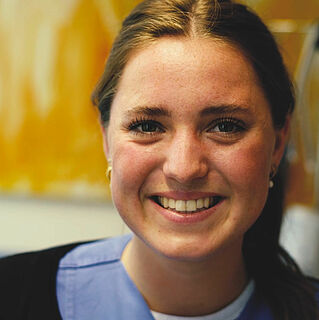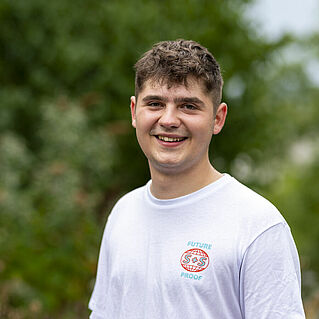It was a modest beginning: the first edition of the Bethel Year started in 2002 with 25 participants. Today, 20 years later, the number is around 20 times higher. Last year, 480 young people were involved in voluntary service at Bethel. It is not only in terms of growth that the Betheljahr is a successful model.
The Bethel Year was conceived at the start of the project as an alternative to civilian service. "Even back then, there were considerations that the civilian service could possibly be cancelled one day," says Deacon Stefan Homann, Head of the Bethel Volunteer Agency. "And because there were around 150 people doing community service at Bethel, we wanted to be prepared for this eventuality."
From then on, Bethel was no longer just a placement centre for the Voluntary Social Year (FSJ), but also a sponsor - and therefore responsible for the application process, seminar offerings and educational support for participants. Civilian service was not actually abolished until 2011, "but by then Bethel had everything organisationally in place," says Stefan Homann. Today, Betheljahr participants have the choice between FSJ and Federal Voluntary Service; there are differences mainly in terms of age limits and the option to fulfil the service on a part-time basis.










